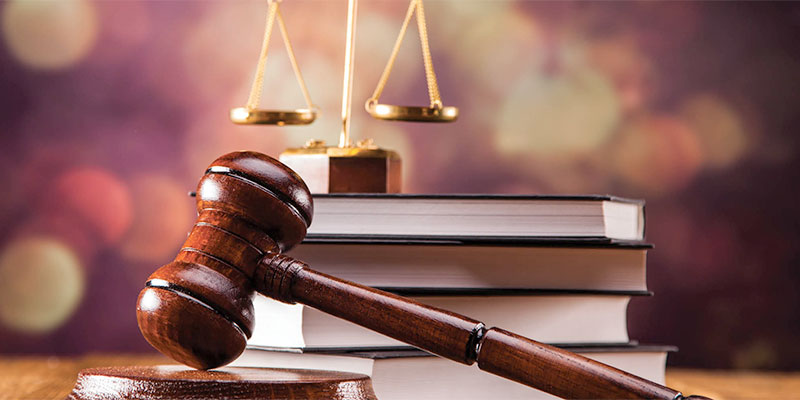The realm of law is vast and complex, influencing almost every aspect of our lives. From safeguarding rights and maintaining order to resolving disputes, the legal system plays a critical role in society. This article delves into essential legal information, aiming to provide a clearer understanding of various legal concepts and their significance.

The Fundamentals of Law
The Purpose of Law
Law serves multiple purposes, primarily to maintain social order, protect individual rights, and uphold justice. By establishing rules and regulations, law provides a framework within which society operates. It sets standards, resolves conflicts, and protects liberties and rights, ensuring a harmonious coexistence among individuals and institutions.
Sources of Law
Law originates from various sources, including:
- Statutory Law: Created by legislative bodies at federal, state, and local levels, these are written laws, such as statutes and ordinances.
- Common Law: Derived from judicial decisions and precedents rather than statutes, common law evolves through court rulings.
- Constitutional Law: Based on the constitution, it defines the structure of government and delineates the rights of individuals.
- Administrative Law: Comprising rules and regulations established by governmental agencies, administrative law governs the activities of these bodies.
Key Legal Concepts
Civil Law vs. Criminal Law
Understanding the distinction between civil and criminal law is crucial:
- Civil Law: Deals with disputes between individuals or entities. It typically involves cases such as contracts, property, and family law. The goal is to resolve disputes and provide compensation to the aggrieved party.
- Criminal Law: Concerns offenses against the state or public. It involves prosecution by the government and seeks to punish wrongdoers, maintaining public order and safety. Examples include theft, assault, and murder.
Legal Rights and Responsibilities
Rights and responsibilities are fundamental legal concepts:
- Rights: Legal entitlements or protections granted to individuals, such as the right to free speech, privacy, and fair treatment.
- Responsibilities: Obligations or duties imposed by law, such as paying taxes, obeying laws, and performing jury duty.
The Legal System
The Court System
The court system is a hierarchical structure comprising various levels:
- Lower Courts: Handle minor cases, including traffic violations, small claims, and preliminary hearings for more serious crimes.
- Trial Courts: Also known as district or superior courts, these courts handle major civil and criminal cases.
- Appellate Courts: Review decisions of lower courts to ensure the correct application of law. They do not re-hear the case but examine legal aspects.
- Supreme Court: The highest court, often serving as the final arbiter of legal disputes. It has the authority to interpret the constitution and its decisions set binding precedents.
Legal Professionals
Several key legal professionals play vital roles within the legal system:
- Judges: Preside over court proceedings, ensuring justice is served fairly and impartially.
- Attorneys: Represent and advise clients in legal matters. They can be divided into various specializations, such as criminal, corporate, or family law.
- Paralegals: Assist attorneys by conducting research, preparing documents, and managing case files.
Legal Processes
Litigation
Litigation is the process of resolving disputes through the court system. It involves several stages:
- Pleading: The plaintiff files a complaint, and the defendant responds with an answer.
- Discovery: Both parties gather evidence, which can include depositions, interrogatories, and document requests.
- Trial: The case is presented before a judge or jury, where both sides present evidence and arguments.
- Judgment: A verdict is rendered, and if necessary, a sentence is imposed.
Alternative Dispute Resolution (ADR)
ADR offers alternative methods to resolve disputes without traditional litigation:
- Mediation: A neutral third party helps the disputing parties reach a mutually agreeable solution.
- Arbitration: A neutral third party hears both sides and makes a binding decision.
Understanding Legal Documents
Contracts
Contracts are legally binding agreements between parties. They must include:
- Offer: One party proposes terms.
- Acceptance: The other party agrees to the terms.
- Consideration: Something of value is exchanged.
- Mutual Consent: Both parties willingly agree to the contract.
Wills and Trusts
These documents manage an individual’s estate:
- Will: Specifies how assets will be distributed after death.
- Trust: A legal arrangement where a trustee manages assets on behalf of beneficiaries.
Conclusion
Navigating the legal landscape requires a foundational understanding of various legal concepts, processes, and the structure of the legal system. By comprehending these elements, individuals can better protect their rights, fulfill their responsibilities, and seek justice effectively. Whether dealing with civil matters or criminal issues, knowledge of the law empowers individuals to make informed decisions and navigate the complexities of legal proceedings.